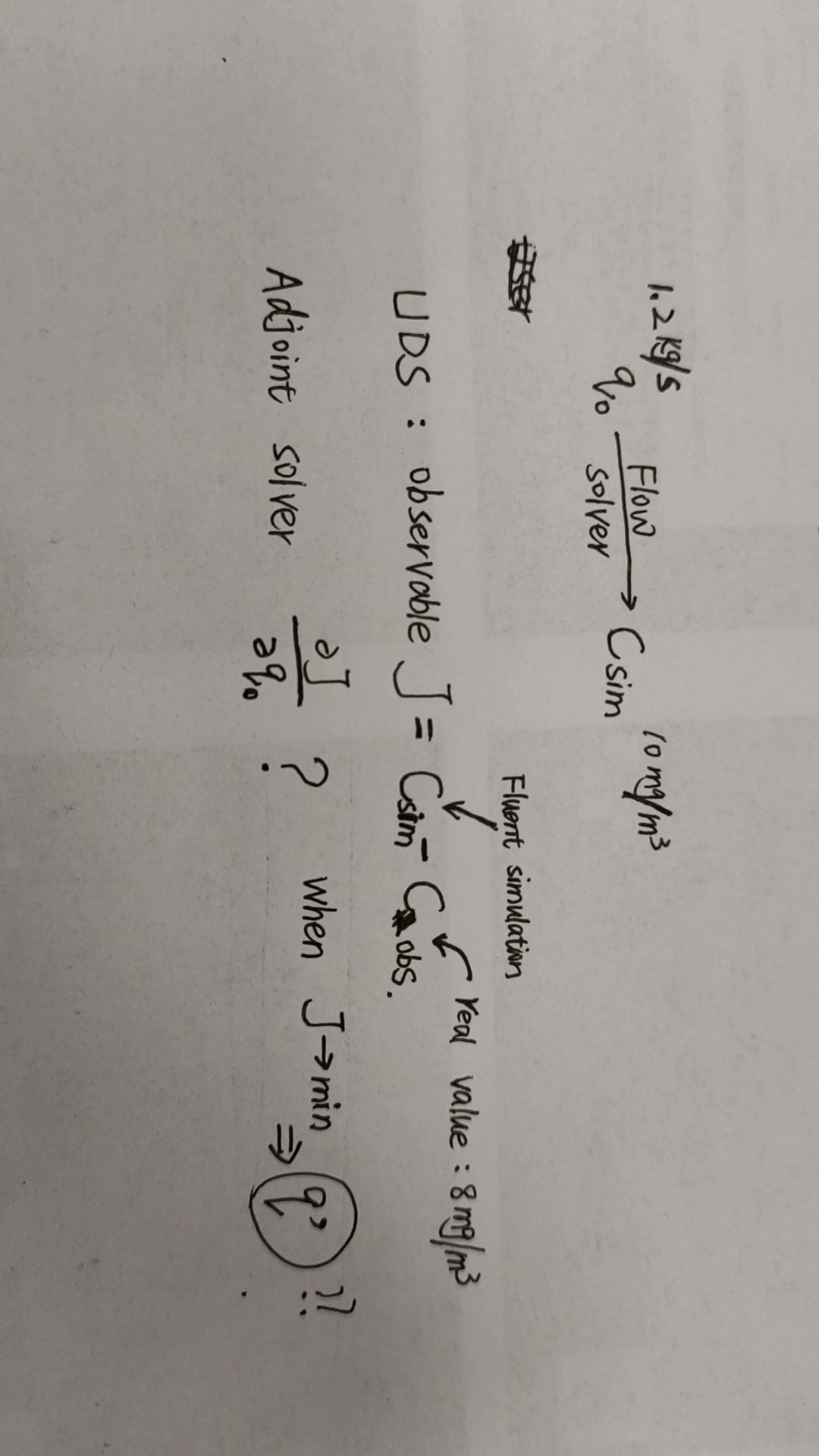-
-
May 17, 2024 at 9:02 am
shuo wang
Subscriber -
May 17, 2024 at 10:03 am
Rob
Forum ModeratorThe gradient will be a function of the flow, why do you need the Adjoint solver too?
-
May 23, 2024 at 3:30 pm
shuo wang
SubscriberSorry, I didn't explain the background of this issue clearly. My purpose is to invert the actual emission intensity. For example, in an industrial park, a company claims to have a daily emission of 1t/d, but in reality, it may be far more than that. By using real observation data, establish a cost function for the difference between simulated and measured values, and by minimizing the cost function, deduce the actual emission rate.That's why I need a gradient based adjoint solver.
-
-
May 31, 2024 at 9:13 am
Rob
Forum ModeratorThat may be better done with a few simulations and then look for a pattern or link. It's going to be very nonlinear so setting criteria might be more difficult.
-
- The topic ‘Fluent Adjoint solver is only capable of shape optimization?’ is closed to new replies.



-
3487
-
1057
-
1051
-
945
-
917

© 2025 Copyright ANSYS, Inc. All rights reserved.








